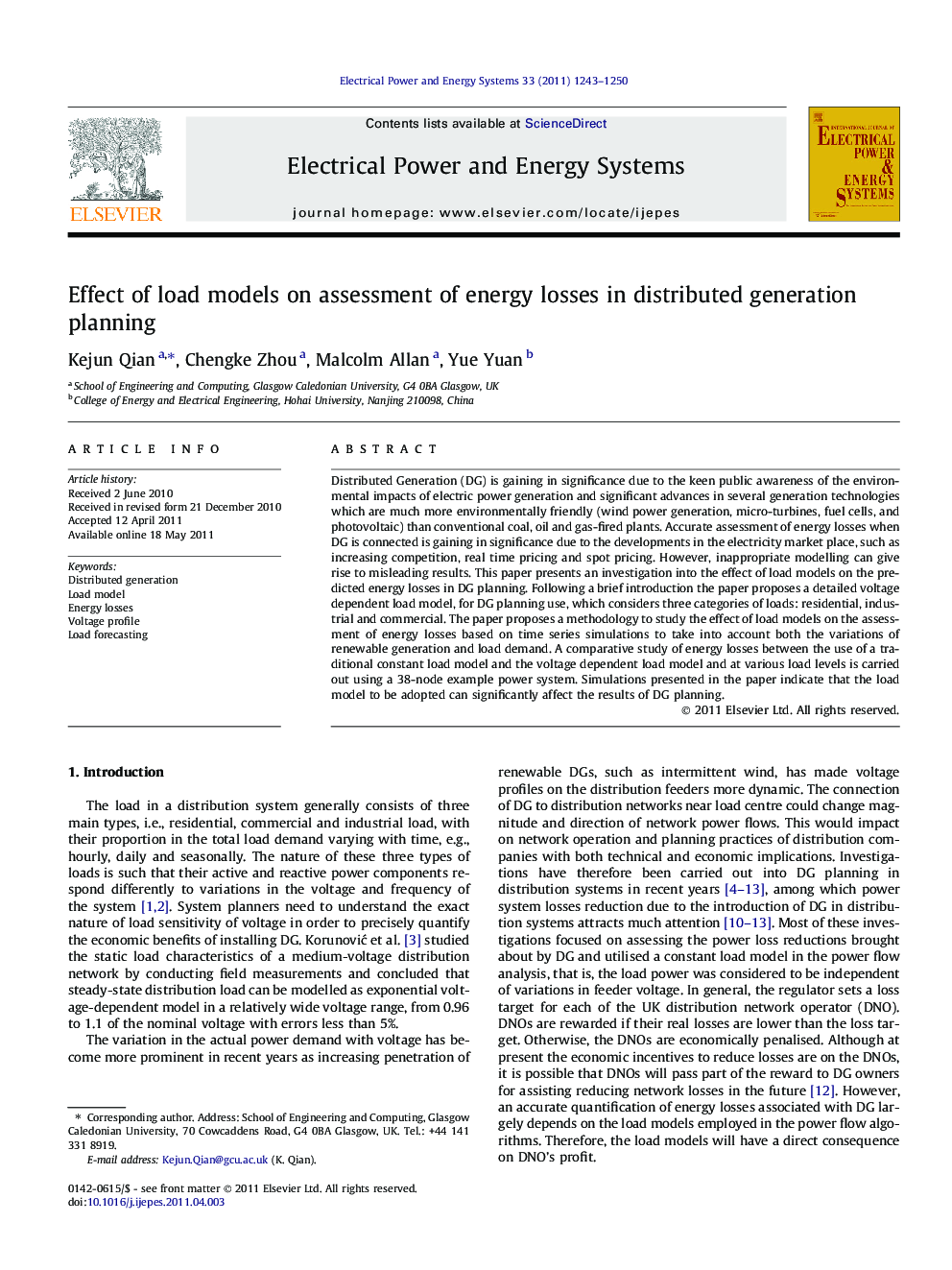| Article ID | Journal | Published Year | Pages | File Type |
|---|---|---|---|---|
| 400063 | International Journal of Electrical Power & Energy Systems | 2011 | 8 Pages |
Distributed Generation (DG) is gaining in significance due to the keen public awareness of the environmental impacts of electric power generation and significant advances in several generation technologies which are much more environmentally friendly (wind power generation, micro-turbines, fuel cells, and photovoltaic) than conventional coal, oil and gas-fired plants. Accurate assessment of energy losses when DG is connected is gaining in significance due to the developments in the electricity market place, such as increasing competition, real time pricing and spot pricing. However, inappropriate modelling can give rise to misleading results. This paper presents an investigation into the effect of load models on the predicted energy losses in DG planning. Following a brief introduction the paper proposes a detailed voltage dependent load model, for DG planning use, which considers three categories of loads: residential, industrial and commercial. The paper proposes a methodology to study the effect of load models on the assessment of energy losses based on time series simulations to take into account both the variations of renewable generation and load demand. A comparative study of energy losses between the use of a traditional constant load model and the voltage dependent load model and at various load levels is carried out using a 38-node example power system. Simulations presented in the paper indicate that the load model to be adopted can significantly affect the results of DG planning.
► Voltage dependent load model. ► Time-series based simulations. ► Energy losses assessment could capture both variations in DG power output and load demand. ► Load models could significantly impact on the DG planning.
